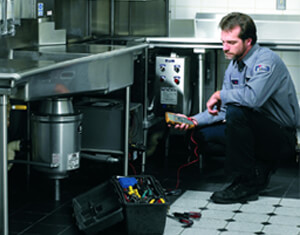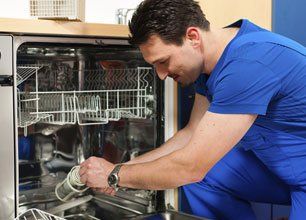Necessary Tips for Effective Ref Fixing to Expand Home Appliance Life Expectancy
When it comes to your refrigerator, correct repair service and maintenance are vital for long life. Understanding common troubles and recognizing when to act can make all the distinction.
Comprehending Typical Refrigerator Problems
Fridges are necessary in keeping your food fresh, however they can run into a range of usual problems that disrupt their efficiency. If you see food spoiling quicker than usual, examine the thermostat setups or take into consideration if the door seals are damaged. Acknowledging these concerns early can save you time and money in repair work, ensuring your fridge runs efficiently and efficiently.
Routine Maintenance Practices
To keep your home appliances running efficiently, you require to remain on top of regular maintenance practices. Clean the condenser coils, check the door seals, and check the temperature level setups to ensure peak performance. These basic jobs can save you money and time on repair work down the line.
Clean Condenser Coils On A Regular Basis
Cleansing your condenser coils frequently can greatly boost your appliance's performance. Dust and dust develop up on these coils over time, causing your device to function more difficult and eat even more power. To maintain them clean, disconnect your home appliance and thoroughly get rid of any type of protective covers.
Check Door Seals
Three straightforward actions can assist you ensure your appliance's door seals are in good problem. 2nd, clean the seals using cozy, soapy water to eliminate any type of debris or crud. By complying with these steps, you'll maintain your device's performance and durability, saving you money on energy costs and repair services in the long run.
Monitor Temperature Level Setups
Regularly checking your home appliance's temperature setups is vital for finest performance and performance. Whether you're taking care of a refrigerator, fridge freezer, or oven, keeping an eye on these setups can avoid lots of issues. For fridges, aim for temperature levels between 35 ° F and 38 ° F; for fridges freezer, stay 0 ° F. If the temperatures are expensive or reduced, your home appliance might work harder, losing energy and reducing its life-span. Use a thermostat to inspect these setups frequently, particularly after major modifications, like relocating your home appliance or readjusting the thermostat. If you discover fluctuations, readjust the settings appropriately and consult the individual manual for guidance. By staying positive concerning temperature level surveillance, you'll ensure your devices run smoothly and last much longer.
Troubleshooting Air Conditioning Concerns
When your fridge isn't cooling correctly, it can cause ruined food and wasted money, so attending to the problem without delay is crucial. Start by examining the temperature level setups to validate they're at the advised degrees, typically around 37 ° F for the fridge and 0 ° F for the freezer. If the settings are appropriate, examine the door seals for any type of spaces or damage; a defective seal can enable warm air to enter.
Following, check out the vents inside the fridge and freezer. Verify they're not obstructed by food products, as this can disrupt air flow. Pay attention for the compressor; if it's not running or making unusual noises, it may need interest. Check the condenser coils, typically located at the back or bottom of the device. Dirt and debris can gather, creating cooling down problems. Tidy them with a vacuum or brush to enhance performance. If problems continue, it may be time to call a professional.
Dealing With Water Leak and Ice Build-Up
If you're dealing with water leak or ice build-up in your appliance, it's necessary to recognize the source of the trouble. By identifying where the water is coming from, you can prevent further issues and stay clear of costly repair services. Let's explore some efficient strategies to deal with these typical troubles.
Recognize Leak Sources
Exactly how can you efficiently identify the sources of water leak and ice accumulation in your appliances? Start by evaluating the seals and gaskets on your fridge and fridge freezer doors. By methodically checking these areas, you'll pinpoint the source of the issue, allowing you to take the needed actions to repair it and expand your device's lifespan.
Prevent Ice Formation
To stop ice formation in your home appliances, Click This Link start by confirming the temperature settings are proper. If your refrigerator or fridge freezer is too cold, it can result in extreme ice accumulation. Inspect the door seals on a regular basis; harmed seals can allow warm air in, creating condensation and ice formation.
Maintain the home appliance well-ventilated and prevent overcrowding, as this can block air movement - Best Appliance Repair Near You Dependable Refrigeration & Appliance Repair Service. Routinely defrost your freezer if it does not have an automated defrost feature.
If you see water leakage, recognize and deal with any kind of obstructed drainage openings, as they can add to ice build-up. Clean the coils and confirm they're operating properly to maintain peak efficiency. Taking these actions will assist expand your device's life-span and efficiency.
Attending To Noisy Refrigerator Sounds
While it could seem startling, a loud refrigerator frequently signifies minor issues as opposed to significant malfunctions. Initially, determine the resource of the noise. Usual offenders consist of the compressor, fans, and water lines. If you hear a humming sound, it could be the compressor working hard; this might just be a typical operation audio.
Next, look for loose products inside. In some cases, containers or racks can rattle, creating unwanted sound. Tighten up or reposition them to remove the sounds.
If you discover a clicking noise, it may be the defrost timer. This is generally safe yet can show it needs examination.
Lastly, verify your refrigerator is level. An unbalanced appliance can create resonances and sound. Utilize a degree to inspect, and adjust the feet if needed. Dealing with these concerns promptly can help keep your fridge's efficiency and prolong its life expectancy.
When to Replace Parts vs. Full Substitute

Think about the expense of repair services versus the device's worth. Furthermore, if you see continuous issues that keep persisting, it's an indication that your appliance has gotten to the end of its life.
Knowing When to Call a Professional
Just how can you inform when it's time to hire a specialist for home appliance fixing? If you see uncommon sounds, scents, or leakages, it's a clear signal that something's wrong. Don't neglect these indicators; they frequently suggest much deeper issues. If your device quits working entirely or regularly trips breaker, it's an additional red flag.
You need to also consider your own comfort degree with fixings. If you're unclear regarding diagnosing the issue or do not have the right devices, it's ideal to connect for aid. Bear in mind, trying complex repair work can result in even more damages and even safety and security hazards.

Regularly Asked Concerns
How Frequently Should I Clean the Refrigerator Coils?
You should clean your refrigerator coils every six months. This helps keep efficiency and protects against getting too hot. If you notice extreme dust or pet dog hair, tidy them a lot more regularly to ensure your refrigerator runs smoothly.

Can I Make Use Of Vinegar for Cleansing My Fridge?
Yes, you can utilize vinegar to clean your refrigerator! It's an exceptional all-natural cleaner that eliminates odors and discolorations. Dependable Refrigeration & Appliance Repair Refrigerator repair specialist of Oro Valley. Just mix it with water, use it to surface areas, and wipe down for a fresh, clean refrigerator
What Temperature level Should My Fridge Be Establish To?
You ought to set your fridge to 37 ° F(3 ° C) for suitable food preservation. This temperature maintains your food fresh while stopping wasting, ensuring your grocery stores last much longer and lowering waste. It's a simple adjustment you can make!
Does a Fridge Required to Be Leveled?
Yes, your refrigerator requires to be leveled. If it's unequal, it can influence cooling performance and create excess sound. Examine the leveling legs and adjust them to ensure proper balance for optimal efficiency.
Just How Can I Reduce Fridge Energy Intake?
To minimize your refrigerator's power usage, maintain it clean and well-ventilated, here are the findings examine door seals for leakages, established the temperature level in between 35-38 ° F, and prevent straining it. These actions can considerably reduce your power bills.